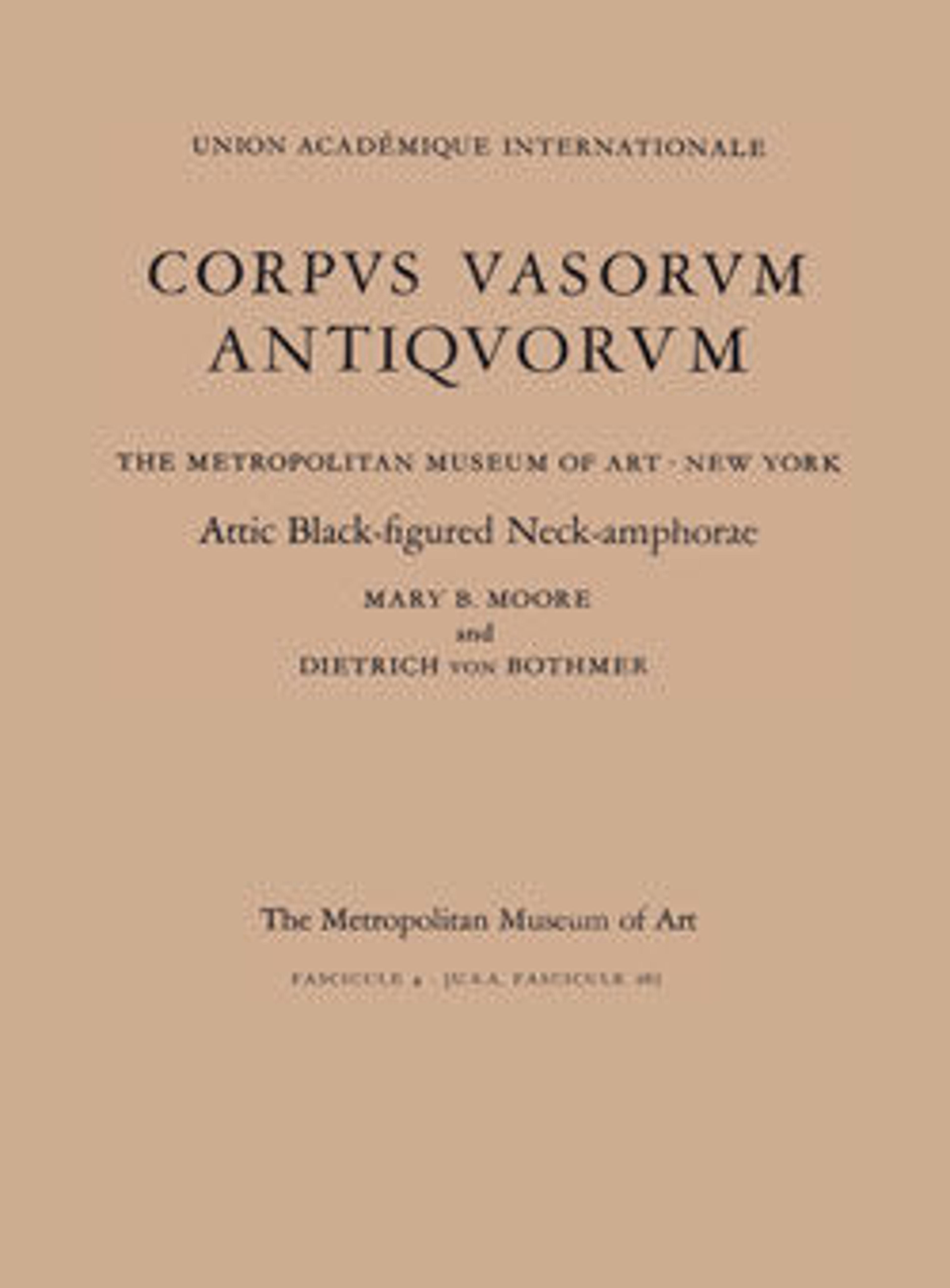Terracotta neck-amphora (jar)
Obverse and reverse, between warriors, eyes
A major iconographical innovation in Attic vase-painting about 540 B.C. was the introduction of pairs of eyes. Traditionally attributed to Exekias, it appears most commonly on cups but occurs on nearly every other shape. The motif was intended to ward off evil. In the context of the symposium (drinking party), it may have served against sickness and hangovers.
A major iconographical innovation in Attic vase-painting about 540 B.C. was the introduction of pairs of eyes. Traditionally attributed to Exekias, it appears most commonly on cups but occurs on nearly every other shape. The motif was intended to ward off evil. In the context of the symposium (drinking party), it may have served against sickness and hangovers.
Artwork Details
- Title: Terracotta neck-amphora (jar)
- Artist: Attributed to the Antimenes Painter
- Period: Archaic
- Date: ca. 525–510 BCE
- Culture: Greek, Attic
- Medium: Terracotta; black-figure
- Dimensions: Overall: 14 7/8 x 10 3/16in. (37.8 x 25.8cm)
diameter of mouth 6 5/8in. (16.8cm) - Classification: Vases
- Credit Line: Rogers Fund, 1964
- Object Number: 64.11.12
- Curatorial Department: Greek and Roman Art
More Artwork
Research Resources
The Met provides unparalleled resources for research and welcomes an international community of students and scholars. The Met's Open Access API is where creators and researchers can connect to the The Met collection. Open Access data and public domain images are available for unrestricted commercial and noncommercial use without permission or fee.
To request images under copyright and other restrictions, please use this Image Request form.
Feedback
We continue to research and examine historical and cultural context for objects in The Met collection. If you have comments or questions about this object record, please contact us using the form below. The Museum looks forward to receiving your comments.
